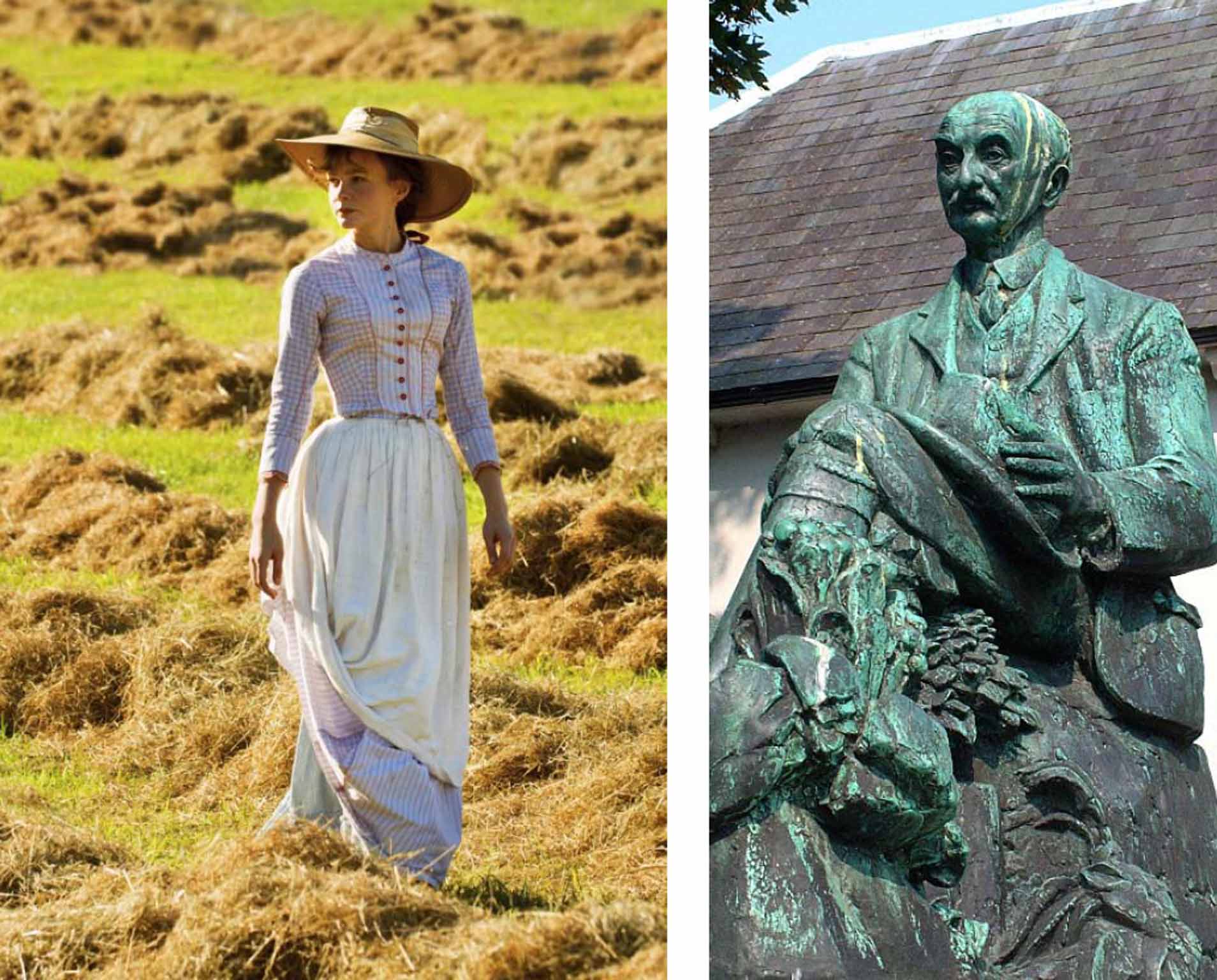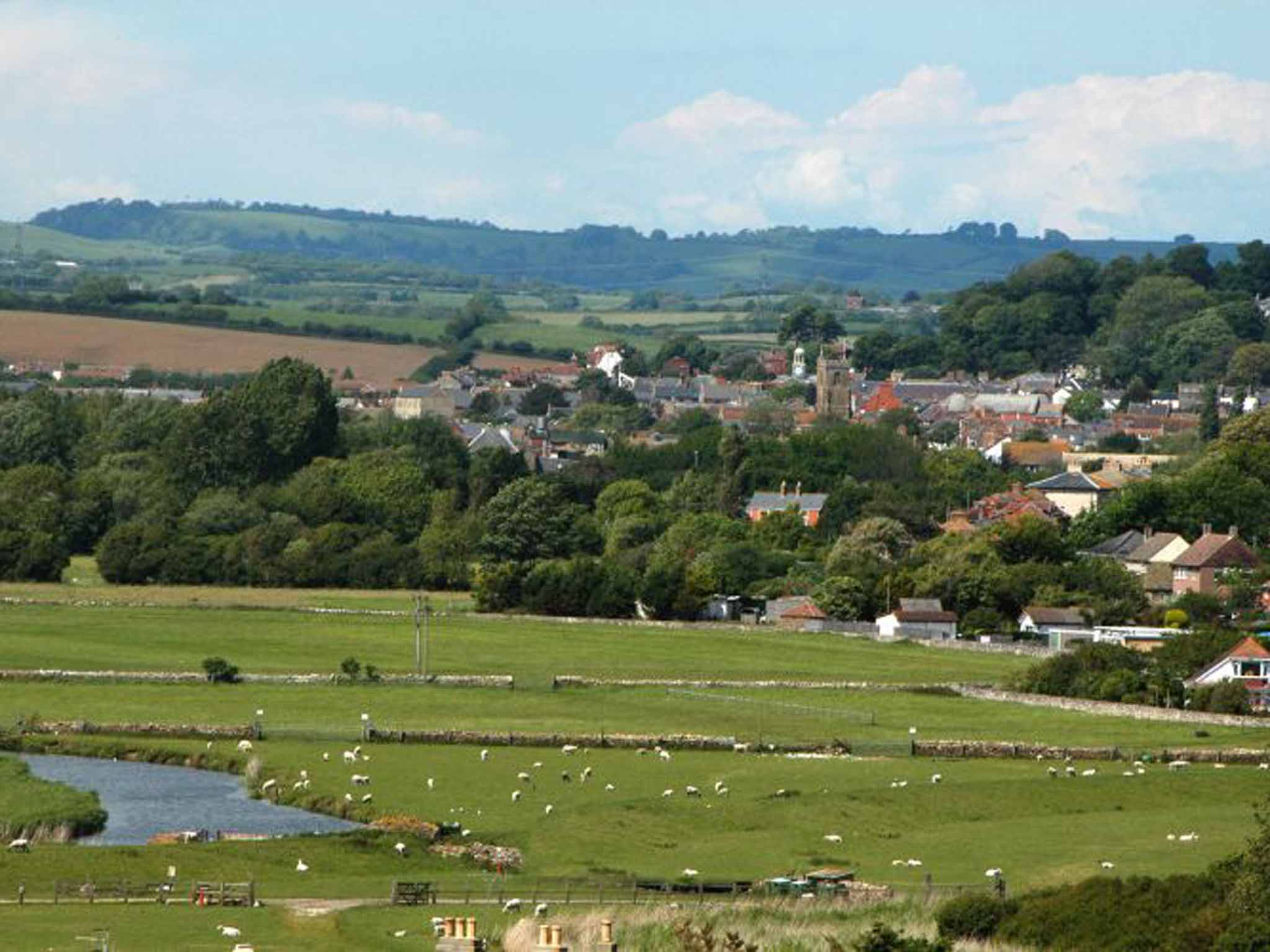Dorset: The locations that inspired Thomas Hardy
With a new film adaptation of 'Far From The Madding Crowd' opening in cinemas next week, Jonathan Lorie visits the world that inspired the author

Your support helps us to tell the story
From reproductive rights to climate change to Big Tech, The Independent is on the ground when the story is developing. Whether it's investigating the financials of Elon Musk's pro-Trump PAC or producing our latest documentary, 'The A Word', which shines a light on the American women fighting for reproductive rights, we know how important it is to parse out the facts from the messaging.
At such a critical moment in US history, we need reporters on the ground. Your donation allows us to keep sending journalists to speak to both sides of the story.
The Independent is trusted by Americans across the entire political spectrum. And unlike many other quality news outlets, we choose not to lock Americans out of our reporting and analysis with paywalls. We believe quality journalism should be available to everyone, paid for by those who can afford it.
Your support makes all the difference.The red carpet has been rolled out and people are strolling in. At the cinema door they pause for photos beside posters of Carey Mulligan and Martin Sheen. From the far end of the Georgian street you can hear the bleating of sheep.
Welcome to the Dorset premiere of Far From The Madding Crowd, held in tiny Bridport for the hundreds of local people who helped as extras or assistants when this latest Hardy film was shot nearby. To their delight, producer Andrew Macdonald announces that "Dorset is the star of this film along with Carey and the other actors".
I've come here to explore the world that inspired this tale. Few writers are as steeped in their landscape as Thomas Hardy, and much of his appeal lies in his evocation of rural life. In Far From The Madding Crowd he revived an ancient Saxon name for this area, Wessex – "a partly real, partly dream country" – and I have come to find it.
Bridport itself is a handsome market town whose red-brick streets still bustle with stalls on a Saturday. Hardy set his poignant love story, Fellow Townsmen, here, renaming it Port Bredy, with final scenes in the 500-year-old Bull Hotel. These days the Bull is a superb restaurant with boutique accommodation, but it retains the feel of the grandest coaching inn in town – bare floorboards, flickering fires and roaring bars, with a Rococo ballroom complete with chandeliers. No wonder the Madding Crowd actors stayed here during filming.

I drive north from Bridport to Toller Down, where Hardy's novel starts. It's a pretty drive amid hills and farms to a vast downland 800 feet high and swept by keen winds. This is Hardy's Norcombe Hill, where Gabriel Oak first proposes to Bathsheba Everdene. Here he loses his flock of sheep and his hopes of prosperity – and it certainly feels like a wild enough place for calamity.
Below the ridge is the lush valley of the river Frome, and at its source the unchanged village of Evershot. This is deepest Dorset, with gold-stoned Tudor cottages and a bow-windowed village shop. Hardy liked to drink by the inglenook hearth at the 16th-century Acorn Inn, which he called The Sow and Acorn in his stories: today its elegant four-poster bedrooms are named after his places and characters. Almost next door is Tess Cottage, a white thatched cabin fronted with bluebells, where Hardy's doomed heroine stopped to rest in Tess of the d'Urbervilles.
I drive down the valley to Dorchester – Casterbridge in Hardy's tales – a county town of fading Georgian grandeur. A statue of Hardy sits at the top of the hill, and a blue plaque on the flint-faced Barclays Bank says this was where the Mayor of Casterbridge lived. The Victorian Gothic Corn Exchange is where Bathsheba amazed the male farmers by daring to sell her own wheat.
Next door is the Dorset County Museum, which houses the original furnishings from Thomas Hardy's study. There's the leather-topped desk where Hardy wrote, scattered with dip pens. A leather satchel with his drawing instruments, from the early days when he worked as an architect. Beside the mantelpiece is the fiddle he played at village parties as a boy.
The study was transferred intact from Max Gate, Hardy's house on the edge of town and my next stop. It's a sturdy red-brick mansion he designed himself in the years of literary success, with turrets at each corner and a croquet lawn in front. By the hedge stands a shepherd's hut on wheels, just like Gabriel's. The drawing room has chintz chairs by a vast, dark fireplace. The dining room has heavy chairs and flame-coloured walls. In the attic is a separate suite of rooms that Hardy's first wife, Emma, moved into, halfway through their marriage. It does not feel like a happy home.

I drive two miles out of town, to the other end of Hardy's life. In the hamlet of Lower Bockhampton is the village school he attended, where the alluring Fancy Day came to teach in Under The Greenwood Tree. Was she, perhaps, the writer's teacher? Along the lane is the old village pump with its crank handle, opposite my hotel for tonight, Yalbury Cottage. Named after Yalbury Wood, where Fancy's father lived, this was once a shepherd's house, but now its 300-year-old brick walls and shaggy thatch hide a lovely small hotel with an oak-beamed restaurant.
Next morning I chug up the lane to Higher Bockhampton. Here Hardy was born in 1840, in a stone cottage under Thorncombe Wood. I approach it through the wood, where paths have been laid through the landscape of his childhood – sighing beech trees, sink-holes, a winding Roman road, a pond on a hill where a wild white pony stands and stares at me, whinnying. All these things Hardy captured in the lyrical poems he wrote throughout his life; his first recorded poem, "Domicilium", is about this house and its surroundings.
Beyond the wood is the wilderness of Black Heath, prototype for the terrifying wasteland of Egdon Heath, which engulfs the characters in The Return Of The Native. But I turn into the serenity of his boyhood home. Inside it is a simple place of whitewashed walls and bare stone floors. There's a wooden settle by a smoking hearth, china dogs on the mantle, and willow pattern dishes on a dresser. Upstairs are three small bedrooms – one for girls, one for boys, and one for the parents. In the latter is a replica of the rough white table at which Thomas wrote his first four books – in this room – including Far From The Madding Crowd. This was the breakthrough novel that allowed him to leave home, marry, and abandon architecture for a lifetime of writing.
I turn back for Dorchester and a final link to the writer. This afternoon the New Hardy Players are rehearsing a play of The Return Of The Native, which will open in July on the lawn at Max Gate. This local amateur group was revived a decade ago at the suggestion of 100-year-old Norrie Woodhall, who had acted under Hardy's own direction as a teenager in the 1920s. She remembered him as a kindly and amusing person, rather taken with her sister playing Tess.
Norrie died in 2011, the last person to have known Hardy. But in a pause in rehearsals, I ask the Players' director, Howard Payton, how it feels to stage one of the writer's works in his own home town. Howard smiles, flashing white beard. "It's very powerful to perform Hardy at Max Gate. Out on that lawn, you're standing under the window of his study. You only have to look up and you think – he's there.
"I used to be a sheep-farmer myself," he adds, "and the shepherd's hut at Max Gate is mine. Sometimes my wife and I perform the parts of Bathsheba and Gabriel on the steps of that hut. And do you know what?" He grins. "When I proposed, I used the words of Gabriel Oak. But she gave me a better answer than Bathsheba."
'Far from the Madding Crowd' is released on Friday
Staying there
The Bull Hotel, Bridport (01308 422878; thebullhotel.co.uk) has double rooms from £100, B&B.
Yalbury Cottage, Lower Bockhampton (01305 262382; yalburycottage.com) has doubles from £120, B&B.
The Acorn Inn, Evershot (01935 83228; acorn-inn.co.uk) offers a Thomas Hardy Experience including one night's accommodation, cream tea, dinner and breakfast, plus entry to Max Gate, and Hardy's Birthplace Cottage. From £275 for two people.
Visiting there
The New Hardy Players (01305 266079; hardyonline.org) perform at outdoor venues across Dorset from 9 July.
Join our commenting forum
Join thought-provoking conversations, follow other Independent readers and see their replies
Comments